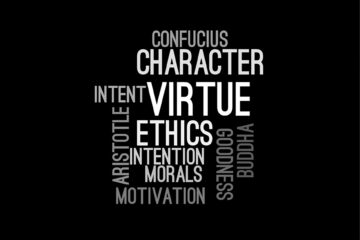![]()
Introduction
In the present paper we will look upon the concept of otherness and how it leads to a system where differences influences the political decisions. The concept of otherness, which denotes the perspective of people who holds bias and prejudice against certain groups and vice versa. The concept is fairly sociological and must be understood by the lens of society, where the divergence lies.
Further, we will analyze the politics of differences and how the concept of otherness damages and creep in the political system and remains there to strangle a country with arbitrary decisions and discrimination.
Defining Otherness
Otherness results from divergent perspectives in which a dominating in-group (“Us,” the Self) generates one or more dominated out-groups (“Them,” Other) by stigmatizing a difference – real or imagined – portrayed as a negation of identity and thus a basis for potential discrimination. To put it simply, difference belongs to the world of fact, whereas otherness belongs to the realm of discourse. Thus, biological sex represents distinction, whereas gender represents otherness.
“Othering” is a broad conceptual framework that encompasses manifestations of prejudice and behaviours such as atavism and tribalism, but it also refers to deeper processes at work, only some of which are represented by those terms. It is also unusual to hear observers refer to Islamaphobia or ethnocentrism as “racist,” despite the fact that religion and ethnicity are not racial characteristics. Similarly, anti-gay and lesbian marriage laws, as well as exclusionary gender norms, are forms of othering, yet people who suffer as a result of them are not defined by origin, nationality, religion, or tribe.
The concept of constructing otherness (also known as othering) entails employing a premise that allows humans to be classified in to two hierarchical groups: them and us. Because of its resistance to the in-group and its sense of alienation, the out-group is only meaningful as a collective. This deficiency is founded on demonizing and blatantly oversimplified preconceptions. The ingroup creates one or more others to distinguish itself and give it identity. Identity and otherness are two sides of the same coin. The Other exists only in connection to the Self, and vice versa.
But those different were not always appreciated by others. The very need to create a distinction can be seen during the start of modern age, with the discovery of America.[1] When Europeans became aware that there are those different, they essentially addressed by reassuringly translating the other into the different, transforming “the non-relation of otherness into the relation of diversity, the incommensurable into the commensurable“. On this basis, the argument alone, about the nature of the Indios, and later they started calling them offensive names because of difference in culture, arose. Regardless of what they were thought to be, the criterion for their evaluation was what made them similar to or distinct from Europeans in terms of physical traits, culture, and economic development.
Power asymmetry is crucial to the creation of otherness. Only the dominant group has the ability to impose the value of its particularity (its identity) while devaluing the particularity of others (their otherness) and enforcing commensurate discriminatory measures. As a result, if the Other of Man is a Woman, and the Other of the White Man is a Black Man, the inverse is not true[2]. Dominated out-groups are Others precisely because they are subservient to the dominating in-concepts groups and behaviors and are unable to impose their own standards. Out-groups cease to be Others when they are able to flee the oppression forced by in-groups, that is, when they are capable of considering a positive, autonomous identity on themselves and call for discourse legitimacy and policy to establish norms, eventually establishing and undervaluing their own out-groups.
These differences can sprung from the littlest of conceptions. Scholars have long noted that human civilizations have a proclivity to arrange and collectively identify themselves along dimensions of diversity and sameness. Since the 1950s, studies have shown that people have a predisposition to identify with those with whom they are classified, regardless of how arbitrary or even ridiculous the group borders are, and to evaluate members of their own group as superior. The views of in-group and out-group members are constantly different in studies that divide pupils into entirely created groups.[3] Researchers observed that even little perceived differences might cause intergroup conflict in the 1954 Robbers Cave study, which was performed on white middle-class boys at a summer camp.[4]
Despite the fact that “human beings are cognitively predisposed to construct conceptual categories and use them to categorize the individuals they oppose,” the content, definition, and meaning of such categories are not automatic.[5] In other words, while humans have a natural proclivity to establish categorical differences, the categories themselves, and also the meanings associated with those categories, are socially made rather than inherent.
As damaging as conscious or unconscious prejudice may be in influencing group results, it is the institutionalization and structural characteristics of othering that may best explain group-based disparities.[6] The most frequent technique for institutionalizing group-based disparities today is regulations or laws that restrict out-groups’ access to community resources, therefore hoarding those resources for in-groups. And the enactment of laws such as the Citizenship Amendment Act of 2019 does not, in any way, brings about hope of freeing government from the clutches of othering.
I believe that “Othering” is a term that not only captures the many expressions of prejudice based on group identities, but also provides a clarifying frame that reveals a set of common processes and conditions that perpetuate group-based inequality and marginality.
Politics of Difference
The globe is characterized by a significant divergence between the haves and the have-nots. It is normal for political philosophers to assume that an impartial allocation of material resources will provide social justice in such a situation. As a corollary, any strategy aimed at making the world a more just place would first assure the provision of basic requirements to the most destitute segments of society. Such distributive conceptions have limited the scope of justice.[7] Injustice exists in society in a variety of other areas, which are anticipated by the problem of unequal distribution of material resources. It cannot be denied that the existence of such disparity or the necessity for distributive justice.
Homi Jahangir Bhabha, while discussing the politics of difference remarked that “what we think of as the politics of difference, what we think of as the politics of multiculturalism, what we think of as the politics of new social movements do not allow us to think the subject of any one of those margins – race, gender, class, culture, geopolitical location, or generation- exclusively.”[8]
He further explains the origin of differences in politics. According to Bhabha, When cultural difference is related to “the redistribution of goods between cultures, or the funding of cultures, or the emergence of minorities or immigrants in a situation of resources.” it becomes problematic. Only at this moment, according to Bhabha, is cultural difference formed, and it is at this time that difference leads to discriminatory politics. Of course, the most common reaction to difference is containment. Racial minorities, for example, are obliged to identify themselves as subnations, and in this framework, they do not pose a challenge to the prevailing hegemony. However, if they “seep in, diffuse in, and modify and translate what is considered to be the main lines of cultural tradition transmission,” they immediately constitute a danger.[9]
Therefore, it becomes clear that to remove the politics of difference, we must altogether remove the concept of otherness from the society.
Political methods based on “othering” are not rare even democracies. Aristotle and other ancient Greeks warned of “demagogues,” or leaders who used language to instill fear in order to achieve political power.[10] Many autocratic and authoritarian rulers incite nationalism, anger, or fear of the “other” in order to prop up or strengthen their own support.[11] Such demagoguery generally entails more than just appealing to the population’s underlying fear or prejudice. Demagogues aggressively instill and mobilize fear as a political force. Prejudice is being ignited where it was dormant, and it is being cultivated where it was dormant.
Even in India, with the current Afghan crisis the political leader are known to make remarks such as “infiltrators are termites and we will weed them out when we come back to power…The BJP would introduce NRC across the country and grant citizenship to each and every Hindu refugee in the country.”[12]Which only leaves us with the political differences that comes with “othering”.
However, some might say that differences are objectively interconnected with politics, though, that much is not true. It is upon the leaders to take the choices of their own, and they choses the strategy of differences rather than belongingness.
Conclusion
The concept of otherness is an archaic concept originating from the human behavior of being terrified of that which they are no familiar with. It is not something which is inherited, but is attained from the surrounding behaviors. By the time the children learn to speak, they have seen enough to discriminate and be cruel to others. Herein lies the problem of politics of difference, which cannot be all together removed from the state without removing the common stereotypical biasness. The differences create an arbitrary environment in the surrounding and take away the person’s choice to someone free from bias, as the otherness spreads in the country and forces the political players to choose what the society wants, whether bias or not.
References:
[1] T. Todorov, The Conquest of America. The question of the Other (University of Oklahoma Press, Norman Oklahoma, 1999)
[2] Frantz Fanon, Black Skin, White Masks (Harmondsworth 1963).
[3] Karina Bland, Blue eyes, brown eyes: What Jane Elliott’s famous experiment says about race 50 years on, azcentral (Nov. 17, 2017), https://www.azcentral.com/story/news/local/karinabland/2017/11/17/blue-eyes-brown-eyes-jane-elliotts-exercise-race-50-years-later/860287001/.
[4] Simon Baron-Cohen, Little Angels, The New York Times (Dec. 27, 2013), https://www.nytimes.com/2013/12/29/books/review/just-babies-the-origins-of-good-and-evil-by-paul-bloom.html.
[5] Douglas S. Massey, Categorically Unequal: The American Stratification System 242 (Russell Sage Foundation, 2007).
[6] Charles Tilly, Durable Inequality (Berkeley, University of California Press, 1999).
[7] Iris Marion Young, Justice and the Politics of Difference (Princeton University Press 2011).
[8] Gary A. Olson and Lynn Worsham, Staging the Politics of Difference: Homi Bhabha’s Critical Literacy, 18 JAC, 361–391 (1988).
[9] Id.
[10] Megan Garber, Donald Trump and ‘Demagogue’: The History of a Loaded Word, The Atlantic, (Dec. 11, 2015), http://www.theatlantic.com/entertainment/archive/2015/12/what-we-talk-about-when-we-talk-about-demagogues/419514.
[11] Dion Nissenbaum and Emre Peker, Turkey’s Ruling AKP Regains Parliamentary Majority in Election, The Wall Street Journal (Nov. 2, 2015), http://www.wsj.com/articles/erdogan-seeks-to-consolidate-rule-in-turkish-election-1446363600.
[12] M. P. Mondal, Infiltrators Are Termites, BJP Will Weed Them Out, Says Amit Shah, The New Indian Express (Apr. 12, 2019), www.newindianexpress.com.



0 Comments